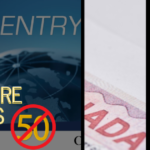In a comprehensive speech delivered by Immigration Minister Marc Miller, significant changes to Canada’s immigration policies were outlined, highlighting the need for sustainable growth and aligning immigration streams with the country’s evolving labor market demands.
Minister Miller commenced his address by acknowledging the traditional and unceded territory of the Algonquin Anishinaabe People, emphasizing Canada’s commitment to reconciliation. He also expressed gratitude towards his colleague, Randy Boissonnault, for their collaborative efforts in shaping immigration policies.
Canada’s immigration system was lauded as world-class and well-managed, with Minister Miller stressing the importance of continually supporting successful immigration to ensure newcomers are set up for success in their new home. He reiterated the pivotal role immigration plays in driving population and labor force growth, attracting skilled workers, reuniting families, and upholding humanitarian traditions.
Notable initiatives such as dedicated programs for rural, northern, and Atlantic regions were highlighted for their contribution to economic growth and community development. The Francophone Immigration Policy was also praised for its efforts in revitalizing minority language communities outside of Quebec.
Acknowledging the surge in temporary residents in recent years, Minister Miller emphasized their positive contributions to Canada’s economy, society, and culture. However, he underscored the need for changes to make the immigration system more efficient and sustainable, particularly in light of evolving labor market dynamics.
The speech provided a detailed breakdown of temporary residents, including international students, temporary foreign workers, and asylum seekers. Minister Miller emphasized the impact of the pandemic on labor shortages across various sectors, necessitating measures to prevent economic breakdown and facilitate recovery.
Addressing challenges such as the exponential growth in international students and pressures from displaced populations, Minister Miller highlighted the government’s response to crises, including the situation in Ukraine, which saw a significant influx of arrivals to Canada.
Key statistics highlighted in the speech:
- International students: 42%
- Temporary foreign workers under the Temporary Foreign Workers Program: 9%
- Temporary workers under the International Mobility Program: 44%
- Post-graduate work permit holders: 26%
- Spouses of students: 9%
- Reciprocal youth exchange programs: 10%
- Spouses of skilled workers: 12%
- Arrivals through programs like CUAET and other special humanitarian pathways: 26%
- Asylum seekers: 5%
Minister Miller outlined previous measures taken, such as imposing caps on international student visas and restricting eligibility for post-graduate work permits. Looking ahead, he emphasized the need for strategic alignment of immigration programs with labor market demands and pathways to permanent residency.
To achieve sustainable growth, Minister Miller announced plans to review existing programs bringing in temporary workers and collaborate with provinces and territories to set targets for both temporary and permanent residents. He underscored the importance of consultation and partnership in developing plans to realign temporary worker streams and support community needs.
In conclusion, Minister Miller reaffirmed Canada’s commitment to welcoming newcomers and ensuring their success while maintaining the integrity and sustainability of the immigration system. He emphasized the importance of a well-managed immigration system built on needs and inclusivity.
The speech concluded with gratitude and a handover to Minister Boissonnault, signaling continued collaboration in shaping Canada’s immigration policies for the future.







